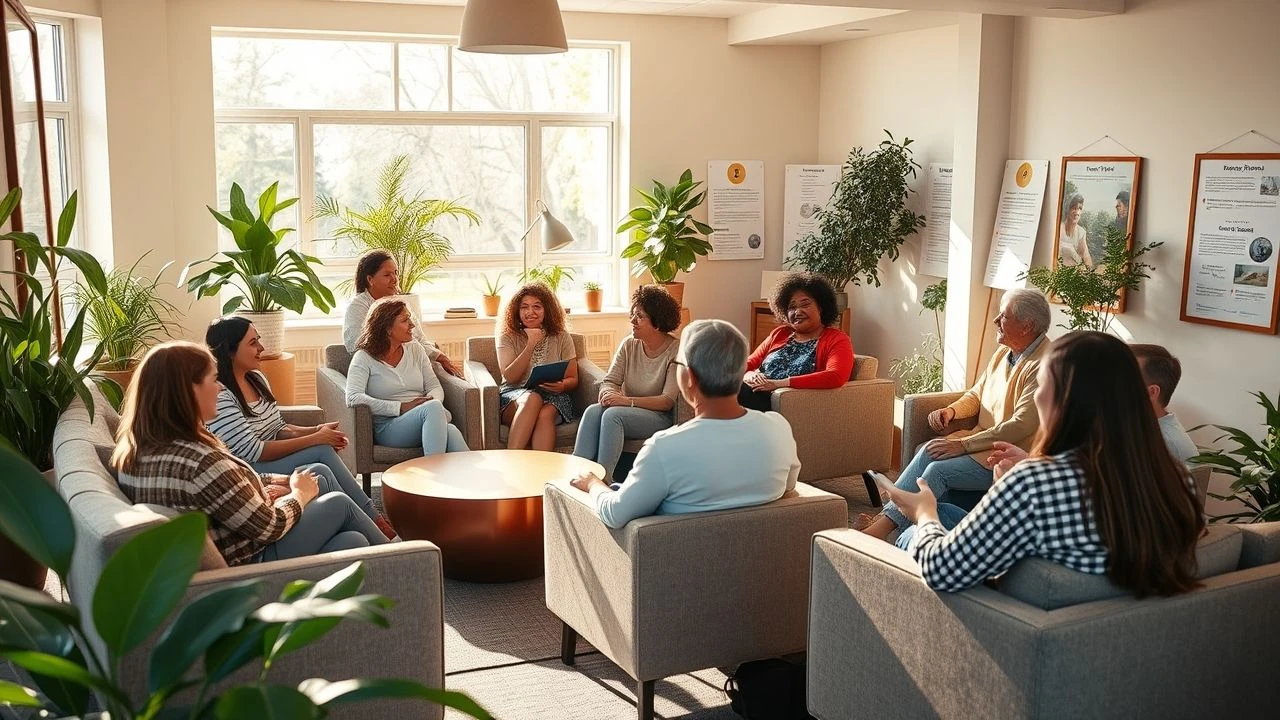
This surge in awareness is crucial. As Dr. Sarah Hughes, a leading clinical psychologist, puts it, "Breaking down the stigma surrounding mental health is paramount. When people feel safe to talk about their struggles, they're more likely to seek support, leading to better outcomes."
We're moving away from the 'stiff upper lip' mentality, thankfully!
Surveys are reflecting this change, too. A recent poll by the Mental Health Foundation revealed a significant increase in people reporting feeling comfortable discussing their mental well-being with their GP. It's not a quick fix, of course, but this upward trend is certainly encouraging. The normalisation of these conversations is essential for creating a supportive environment where everyone feels empowered to prioritise their mental well-being and seek help when needed. It's about building a society where looking after your mind is as natural as looking after your body. And that's something worth striving for.
For instance, the NHS has seen increased funding streams specifically ear-marked for mental health provisions, allowing for a broader range of therapies and increased staffing. Healthcare policies are shifting too, aiming to integrate mental health services more seamlessly into primary care, making it easier for people to get the help they need, when they need it. We're looking at a more holistic approach, moving away from siloed treatment.
The World Health Organisation (WHO) and our own national health ministries keep a close eye on all this. Their reports often highlight the impact of these legislative changes on accessibility and how they're helping to reduce disparities in mental health care. Whilst we're not there yet, the data shows a positive trend. We are making headway. We're seeing improvements in access to early intervention programmes and a reduction in waiting times for specialist appointments. It's a long game, mind, but these changes are essential for ensuring everyone, regardless of postcode or background, has the opportunity to thrive mentally.
Across the UK, communities and organisations are stepping up their game when it comes to mental health advocacy. Non-profits, schools, and workplaces are increasingly recognising their vital role in promoting awareness and providing support. We're seeing a real shift towards proactively fostering emotional well-being.
Take, for instance, the rise in workplace workshops focusing on stress management and resilience. Many companies are now offering these as standard, often partnering with mental health charities to deliver impactful sessions. A recent report from the Mental Health Foundation highlighted that organisations implementing such programmes saw a 20% decrease in employee sick leave related to stress and anxiety. That's a proper result!
Schools, too, are getting involved. There's a growing emphasis on teaching young people about mental health, equipping them with the tools to understand their emotions and seek help when needed. Some schools are even piloting programmes that train students as mental health first aiders, creating a peer support network. It's about creating a culture where it's okay to not be okay,
says Sarah Hughes, CEO of Centre for Mental Health.
Numerous campaigns, often driven by charities, are striving to break down the stigma surrounding mental health. These initiatives use various platforms, from social media to public service announcements, to encourage open conversations and challenge misconceptions. The success of these campaigns is evident in the growing number of people seeking help and feeling comfortable talking about their mental health experiences.
For example, let's look at the initiative run by 'Mind' which aims to provide every person with a mental health problem access to quality care and respect. Their local network of charities offer specialised support and deliver initiatives tailored to specific community needs. This bespoke approach is critical in reaching people from various backgrounds, ensuring that mental health support is truly accessible to everyone.
Here are some examples of common initiatives implemented by community and organisational efforts:
Ultimately, the collective efforts of communities and organisations are proving crucial in creating a more supportive and understanding society when it comes to mental health. It’s a marathon, not a sprint, but the progress is undeniable.

Communities Unite to Combat Opioid Crisis with Comprehensive Strategies
Expanding Voting Rights: Legislative Battles for Equitable Access in the US
Affordable Housing Crisis: Advocates Demand Policy Changes to Combat Homelessness and Inequality
Education Underfunded: Calls Mount for Equitable Distribution and Increased Support for Public Schools
Revamping America's Roads: Ambitious Plans to Modernize U.S. Transportation Infrastructure Take Center Stage
Gun Control in America: Renewed Debates Emerge Amidst Rising Violence